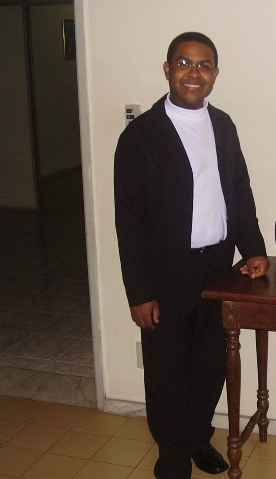Certain times someone well inspired said that life is an eternal learning, where the days always bring an opportunity to learn new lessons. These days, for example, I have been particularly excited by some teachings of the pencil. Initially, I remained fascinated with a phrase from Mother Teresa of Calcutta, who, looking at her vocation, concluded: I am nothing, but an instrument, a small pencil in the hands of my Lord, with which he writes whatever he desires.” When I found myself before this fragment, I remained surprised to encounter such veiled lessons in some simple objects, important lessons that are well learned that raise to us a range of meaning for our live, our history, our vocation.
I would not like to be methodical to the discourse on the lessons that raise up through the pencil, with all, I think that inevitably I will have the desire to explore their riches, such as the prospector is disposed when he encounters a mine. With a pencil we learn the first lesson of confidence and of abandonment to God. He raises us that we may do great things, but that we should not forget that there exists a Hand that guides our steps, a Hand that desires to lead us. It is necessary that we submit ourselves to this Hand, allowing ourselves to be led and oriented through it, although it may be the way we would like that it may be. A pen without a hand that takes it and moves it, does not have much feeling.
A second Lesson, is that in life after some time, We need to be sharpened. Passing through the sharpener should not be very agreeable to the pencil, but in order that the point may remain strong and appropriate for the writing, it needs to allow itself to be sharpened. And allowing itself to be ‘shortened in the flesh.’ It is quite true that we have fear of the sharpener, and this happens because we know that sharpening the point means almost always to cut back excesses, trim what is left, cast out that which we don’t need any more, and this is quite difficult, although it may be necessary for our growth. The hidden beauty in this lesson bring us to a third: To pass through the sharpener, the pencil was cut in its external part, but also in its interior. The graphite also was shaped and renewed. Passing through a education process, because educating, ex-ducere, as said in latin, evokes the truth, draws out, extracts, bring forth the new. What is really important in the pencis is not simply the wood or its external aspect, but over all the graphite that is inside. In order the writing may remain perfect, the point needs to be made inside, giving the important of caring for happens in our inside.
The fourth lesson, is that the pencil always permits us to use an eraser to eliminate mistakes. The necessity of the eraser makes us abandon attitudes and vices, makes us change behavior, mentality, convictions. . . it makes us see in other directions, asking pardon, turn back, begin again, overcome selfishness and self-sufficiency. It is interesting as the admirable mode, the pencil teaches us the need to we have of erasing when we are before the error.
Finally, the fifth lesson is that the pencil always leaves a mark. All that we do marks persons in some way, marks overall ourselves. The quality of these marks always result in choices that we may do before the other lessons. It is necessary to allow the good marks for that which the pencil was made. If we do not let them, it is time to begin again. It is time of writing a new history, It is necessary as the pencil to abandon ourselves. The is now. The time is in this day that we call TODAY. A Good Teacher is seated at the table and before him he has a pencil, a sharpener, eraser, and a blank piece of paper. He looks at the piece of paper, takes the pence in his hand in accordance with St. Augustine saying “having faith, is this, abandoning oneself, it is being a blank piece of paper and allowing God to write on it with the pencil of our life whatever He wants.”
Your Brother,
Jerônimo Lauricio (Discipulado 2011 – CN)
Translated from Portuguese


